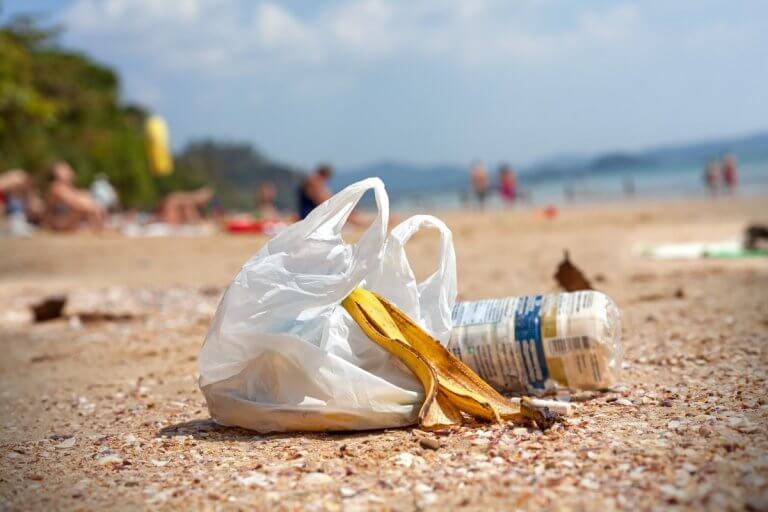
When was the last time you stepped out of your student bubble to remember your place as a global citizen? While you’re busy making new friends and learning new things, it might feel like the earth is revolving around your uni campus. But, the reality is the earth continues to exist around you, as it moves closer to environmental disarray.
Settling into a new home and adapting to university life can be challenging, often letting environmental awareness slip through the cracks of our conscious thoughts. After all, it’s hard enough to remember to take out your kitchen bin, let alone to sort through recycling!
Yet, as an international student, you have the unique opportunity to contribute to a new culture. With this chance comes a responsibility to respect your brand-new home. Of course, you could just keep your head down, earn your degree, and leave – but you should be having fun and striving for personal development.
There are many possible ways you can contribute to your new home and make the most of your adventure, from chatting to some of the homeless people on your way home to volunteering in the local community.
But, as the world hurtles towards environmental disaster, the most significant respect you can pay to your university city is through respecting your surrounding environment.

Small changes can really enhance your study abroad experience. Source: Shutterstock
It can be hard to know where to start when striving to be environmentally conscious. Some people will tell you to stop eating meat; others will preach the benefits of walking or cycling, or should limiting your water usage be your overriding priority?
If you’re feeling overwhelmed or undermined in your environmental mission, why not take inspiration from the recent World Environment Day 2018, which held one simple request: “Beat plastic pollution.”
In some countries, this will be easy. Sweden, for example, already places recycling bins in student halls, urging students to look after their environment, while other universities run beach clean-ups or ‘plogging’ meetups, to keep the landscape rubbish-free.
But, not all education hotspots are as environmentally aware. You might find this to be the case, particularly if you’re studying in Asia – the continent that produces more plastic waste that enters the ocean than the rest of the world combined.
According to a 2017 report by Ocean Conservatory, China, India, Philippines, Vietnam and Thailand produced 55 to 60 percent of the world’s plastic waste in the ocean.

It’s estimated there will be more plastic than fish in the ocean by 2050 unless things change. Source: @justinhofman/Instagram
This isn’t too surprising when you consider all the bottled water you’ll drink due to undrinkable tap water, the disposable ponchos called into action during sometimes daily tropical rainstorms and the endless street food handed out in plastic containers.
And as more international students eye up the continent as their study abroad destination, creating more mouths to feed and heads to shelter from downpours, this problem could likely worsen…only if students don’t take the responsibility on for themselves, that is.
With 440,000 educational feet making their way to China in 2015 alone – and Japan and South Korea not too far behind – there is definitely potential for the waste to increase – as well as scope for massive change.
If every student takes responsibility for their consumption and disposal there could be a major shift in attitudes and awareness towards individual actions on the environment.
Microplastic: tiny bits of plastic broken down from bigger pieces of plastic waste. Plastic actually does not break down, but breaks UP into these tiny pieces that get eaten by plankton, which gets eaten by fish, and eventually travel all the way up to us! ☢️ pic.twitter.com/43AOcSyDMF
— WWF-Philippines (@WWF_Philippines) June 7, 2018
‘Every little helps’ definitely rings true for environmental change. Every recycled bottle is one less that could end up in the sea; every reusable straw is one less that could make it into marine animals’ environment; and every refused plastic bag is one less trap for a fish, turtles or dolphins.
And it’s not just those heading to Asia that can make a difference. Even in the UK, only 400 of the 2.5 billion disposable cups fueling caffeine addictions and Instagram likes make it to the recycling bin each year. Meanwhile, the US sips and slurps through a whopping 500 million straws on the daily.
In fact, because plastics never breakdown, there are now more microplastics in the ocean than there are stars in the galaxy, by 500 percent.
While these statistics may seem more substantial than anything you could help tackle, it’s important to remember that even one piece of plastic could seriously harm an animal. You are a guest in the country you’re studying in, meaning you should respect the place, people and paws within your new home.
International students have the ability to make lasting economic and societal impacts to their host country. Make sure they don’t scar.
Liked this? Then you’ll love…
The value of volunteering when studying abroad
How international volunteering can add to your study abroad experience







